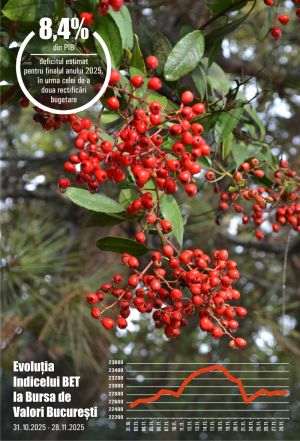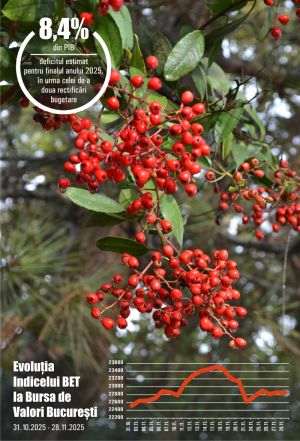The urgent amendment of the laws of justice, which is generating a serious attack on the entire democratic system in the country, is turning journalists into offenders, according to a press release of the president of the FAIR - MediaSind Culture and Mass Media Federation.
The members of the Mediasind delegation claim: "If we stop only to the incrimination of publishing information of public interest from the criminal cases, we find that journalists are essentially being turned into offenders: «In article 4, after paragraph (2) two new paragraphs are being introduced, (3) and (4) with the following contents: (3) During the criminal pursuit and the judging of the cause in the preliminary procedure public communications are prohibited, as well as public statements and providing information, directly or indirectly, originating from public authorities or any other natural or legal persons, concerning the facts or the individuals which are the object of those proceedings. The violation of this obligation represents an offense and is punishable according to the criminal law».
This article clearly violates the European Directive concerning the presumption of innocence, invoked by politicians, which clarify that «the member states should take the adequate measures for the public authorities, when they communicate information to the mass-media, not to refer to the suspected or accused individuals as being guilty as long as it hasn't been proven according to the law that they're guilty. For that purpose, the member states should inform the public authorities concerning the importance of honoring the presumption of innocence when they provide or reveal information to the mass-media. That shouldn't even infringe on the internal right which protects the freedom of the press and of other mass-media».
Another issue highlighted by the Romanian delegation is the political assault on the independence of the public media institutions: the AGERPRES national press agency, the Romanian Television Company and the Romanian Radio Television.
MediaSind states: "In this context, the amendment of the Law of AGERPRES initiated by the Minister of Culture, Lucian Romaşcanu, has been discussed, and if it passes, it will lead to the politicization of the biggest public national agency. We can't ignore the fact that the unification of the three institutions is being discussed more and more often by a Board of Directors that is politically managed, following Hungary's model and the turning of the new entity into a governmental agency serving the government. The new political appointments at the Public Radio create a legitimate concern in Romanian society. The promoting at the top of the SRR (National Radio Broadcasting Company) of people from the top tier of the ruling party is a clear sign that the ruling parties want to fully control the means of information. The consequences of this action to subordinate the National Radio Company have started to become visible. Thus we are already seeing actions of disregarding the social partners by signing orders which seriously affect the functioning of the unions and their ability to protect their members. Also, among the employees there is concern over their jobs. We are also witnessing a drop in ratings. All of these lead to the reduction of the citizens' rights to be informed".
Other issues brought up to the attention of the meeting of the Social Dialog Commission Live Performance of the European Commission were: the intention of the management of the Ministry of Social Dialog to amend labor legislation and to dismantle the Culture and Mass-media sector, by introducing, in the opinion of MediaSind, some aberrant and anti-constitutional dispositions which would make it impossible to defend workers' rights in these important areas; the lack of substance of social dialogue at the level of the Ministry of Culture, which essentially makes it impossible to sign a collective labor agreement in the culture and mass-media sector; the discriminations against artists through the Law of Unified Wages; the dramatic situation of artists, journalists and independent technicians.
These issues have also been discussed with the leadership of the European Federation of Journalists, at the "Managing change in media" conference, which was held on December 14th, 2017 at its headquarters. The secretary general of FEJ, Ricardo Guiterrez, has made a commitment in the name of FEJ that it would support, with all its strength, the efforts of FAIR-MediaSind to halt the politicians' attacks against the independence of Romanians journalists, including through strong interventions with the European Council, the European parliament and the European Commission.
The representatives of FAIR-MediaSind have asked for the support of the European Institutions for the resolution of these grave issues.
According to the press release, the FAIR MediaSind Culture and Mass - Media Federation, together with the international organizations to which it is affiliated - the European Federation of Journalists, the International Federation of Journalists, the International Federation of Musicians, the International Federation of Actors and UNI Global UNION, will act through every available means to determine Romanian politicians to comply with the European freedom of expression directives, like Romania has pledged through the accession treaty.























































